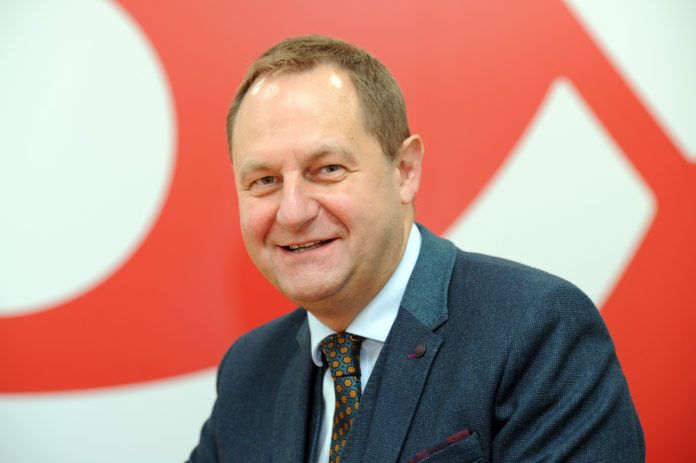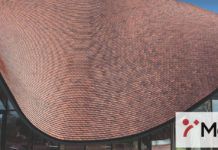
The construction industry has been on quite a journey over the past decade – from recession, to recovery and a boom in building activity, followed by a long period of uncertainty surrounding Brexit. Clearly, financial security and stability is the main concern for any roofing business in the UK next year, but setting that aside, what are the other priorities for the sector as we head into a new decade?
One of the most pressing concerns for the roofing industry is our changing climate. The UK’s wettest days are now seeing 17% more rainfall than in the previous decade, and experts are predicting increasing extreme weather events, such as storms and flooding.
As an industry we have to take action, both to reduce the carbon emissions generated by our sector and also to make sure that pitched roofs are secure enough to withstand more volatile weather conditions.
At Marley, we have been at the forefront of sustainability in the roofing sector for many years and we have an ongoing commitment to reducing the environmental impacts of our operations throughout the UK. As well as reducing CO2 emissions from manufacturing processes, we also have an ambitious target to divert 100% of waste from landfill, and we have already managed to achieve this at two of our facilities. We also continue to recycle 100% of production waste.
Sustainable materials
With growing pressure to reduce the carbon emissions of new homes in the UK, the sustainability of materials is likely to become more of an influencing factor in roof design and specification. To help contractors choose products with the lowest emissions, all of our tiles and slates have a calculated carbon footprint, achieve an A+ rating in the BRE Green Guide, and have an ‘Excellent’ BES 6001 responsible sourcing accreditation.
When it comes to increasing the security of pitched roofing, there has been a great deal of progress over the past five or six years. The revised BS 5534:2014 introduced more stringent roof fixing requirements and has reduced the use of mortar. However, this is not a law, so it is critical that all roofs (new and refurb) are fixed to the Standard and that new fixing specifications are obtained for every project.
The market has seen a huge shift towards dry fix systems since 2015, which is great news, but as the introduction of BS 8612 last year showed, not all dry fix products offer the same levels of quality. The new dry fix standard sets a minimum level, but it does not mean that all compliant systems are the same. If one system is much cheaper than another, contractors should be asking why – what material are the components made from? Is it easy to install?
Are you really getting what you pay for?
In 2020, contractors should certainly be asking more questions about the quality of the roofing products they use – particularly when it comes to battens. When they think they are buying BS 5534 compliant battens, is this really what they are getting? There are concerns that some graded battens may not actually meet the strict requirements of BS 5534 and this is a serious issue, given that they can be used as a foothold and are a structural and load bearing element. Our JB Red battens are machine graded and BBA-certified to give peace of mind, but contractors can check their own battens with our free pocket checklist (available by emailing info@marley.co.uk).
The ongoing skills shortage is likely to be one of the biggest challenges for the roofing sector in 2020. As well as supporting initiatives such as SkillBuild and running our own apprenticeship scheme, it is important that we continue to invest in developing easy-to-fix products that can help reduce labour time on-site. However, while we need time saving innovations, we don’t want to take away the traditional aesthetic of a pitched roof. It is important, therefore, that we offer a range of products to give contractors choice – from handmade tiles, all the way through to easy-to-fix modern interlocking tiles.
In 2019, we launched a new type of tile that offers the best of both worlds. Eden is a traditional pantile that incorporates some hidden, easy-to-fix features previously only seen on our interlocking tiles. We expect this type of blend of traditional and modern will prove very popular in the roof tile market over the coming years.
From new standards, to product innovations, cutting carbon emissions and investment in apprentices, the roofing sector has made a huge amount of progress over the past decade, and as we head into 2020, we look forward to seeing what the next 10 years brings.



